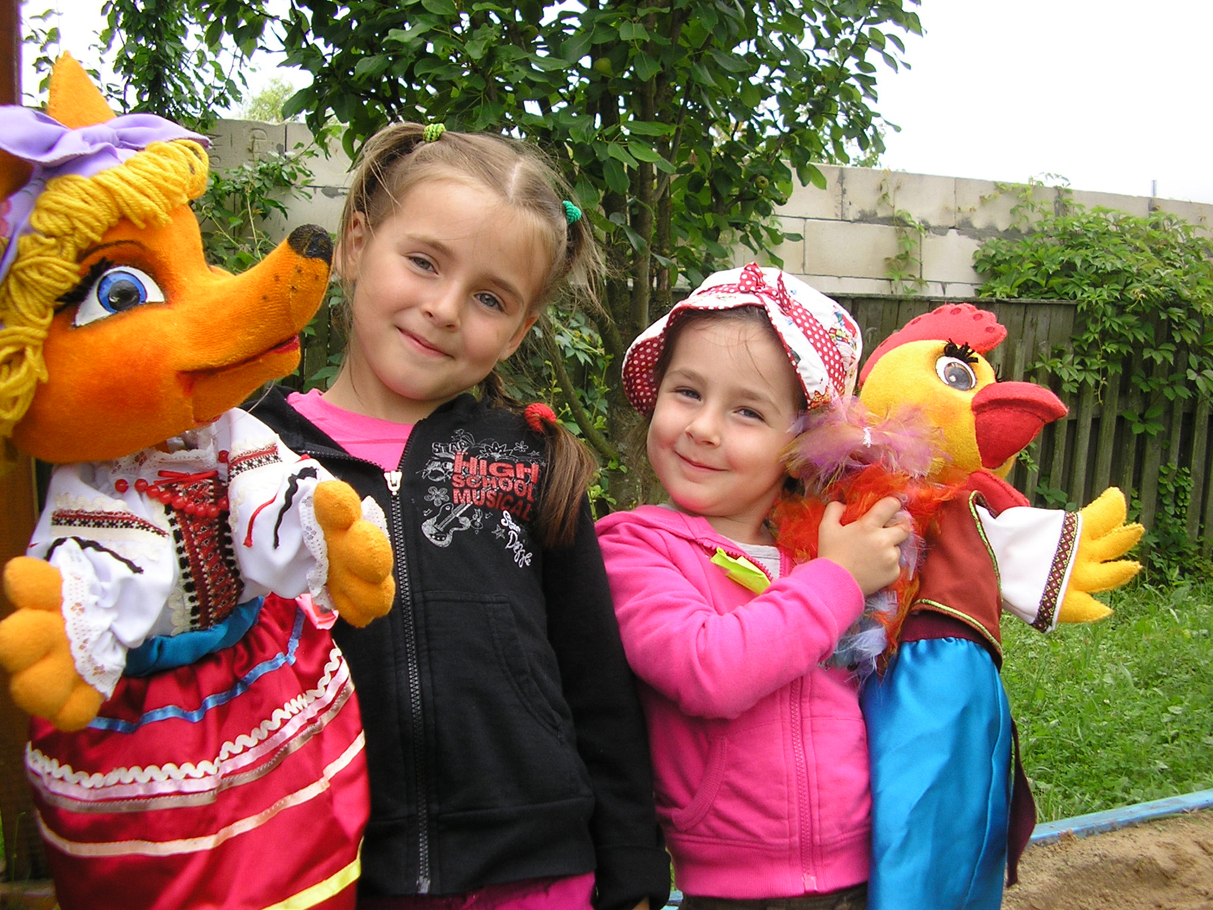
05.09.13, Ukraine
Recently, closing conference on project “Network of Social Centres for the Children of Labour Migrants”, was held in Lviv. This project has been implemented by Caritas Ukraine since 2010. The event was aimed to draw a line on three-year work of the project, identify main lessons, share experience and discuss perspectives of the development of children social centres in regional offices of Caritas Ukraine.
The conference was held on August 22-23; among its participants were approximately 25 employees of social centres for children of Caritas Ukraine project on assistance to labour migrants children and also workers of Committee on migration of the UGCC, workers of the Ukrainian Catholic University, and employees of practical psychology and social work centres in Ivano-Frankivsk – all in all, nearly 40 experts.
We interviewed Zoryana Lukavetska, National coordinator of work with kids, youth and families in need, about experience and characteristic aspects of work with labour migrants’ children, geography and financial support of projects directed to help needful children and youth.
We interviewed Zoryana Lukavetska, National coordinator of work with kids, youth and families in need, about experience and characteristic aspects of work with labour migrants’ children, geography and financial support of projects directed to help needful children and youth.
– What is the dynamics of Caritas Ukraine work on care of needful children, youth and families for the last 5 or even 12 years? What was the beginning of work with labour migrants’ children and why?
Caritas Ukraine is constantly improving its services in the sphere of care and assistance to children, youth and families, developing its approaches in accordance with changes in public space. Such work lasts for over 12 years. We follow needs and challenges in society, search for possibilities to meet these challenges. That’s why project on work with labour migrants’ children was launched in 2008. New target group that we chose was very vulnerable, at the same time absolutely uncovered by any social and psychological services.
Migration of Ukrainians became generally accepted reality, everyone is aware of it, speaks about it, however, decent attention isn’t been paid to this issue. 65-70% of migrants, particularly in Western Ukraine, are women. This leads to weakening of family ties, worsening of demographic situation, changing of gender roles in family and society. Notably youngsters suffer from migration of their parents. It is difficult for them to cope with forced separation; they lack normal upbringing and care.
Problem of so-called distant families and children that grow up without parents possibly doesn’t influence directly situation in Ukraine nowadays, but it will have serious consequences already in some years, when the majority of kids of labour migrants will become adults and look for their way in life, build own families.
Problem of so-called distant families and children that grow up without parents possibly doesn’t influence directly situation in Ukraine nowadays, but it will have serious consequences already in some years, when the majority 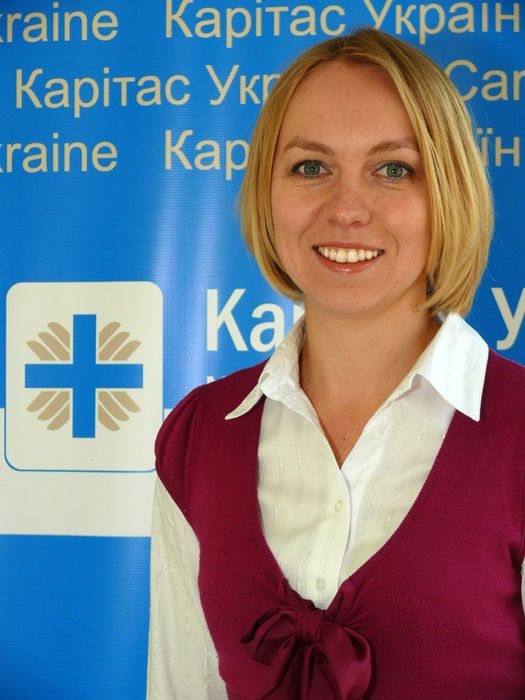 of kids of labour migrants will become adults and look for their way in life, build own families.
of kids of labour migrants will become adults and look for their way in life, build own families.
– What are the unique messages of the recent conference in Lviv?
During the conference each of 7 social centres for labour migrants’ children presented its results in the form of short reports: Ivano-Frankivsk, Kolomyia, Drohobych, Novovolynsk, Brody, Boryslav, Stryi. Summarizing all the reports, for three years of work each centre rendered services to an average of 150-200 children and youth; parents, caregivers and teachers who were indirect clients, nearly 200 individuals in every city, also took advantage of the project . It’s a colossal experience to be accumulated and spread.
– How can you describe your clients, – labour migrants’ children? Why do they need help?
Workers of all centres faced the same problems in all these children:
- unstable psycho-emotional state (anxiety, inclination to conflict behaviour and aggression, redundant vulnerability, restraint, low level of self-esteem);
- difficulties in social adaptation of youngsters (absence of practical skills in every day life and lack of motivation to create own family);
- inaptitude to take responsibility for their own actions;
- difficulties in relationships with closest people that surround them (family, relatives, classmates and teachers) and in comprehension of social roles in inter-personal relations;
- depreciation of human values (domination of material values over human);
- difficulties in learning process, problems in professional self-determination;
- inability to organize leisure time.
– Who else works with labour migrants’ children and how do you interconnect your activities?
No one does this work systematically; maybe, some non-governmental organizations do it occasionally and in relevant manner. That’s why, for the previous three years we provided practical psychological and pedagogical follow-up to children and youth whose parents are on earnings, and also did a research of this group of clients, defined the results that became a background for approaches to our work and delivered information to other structures, services and civic organizations involved in the activities with children and youth.
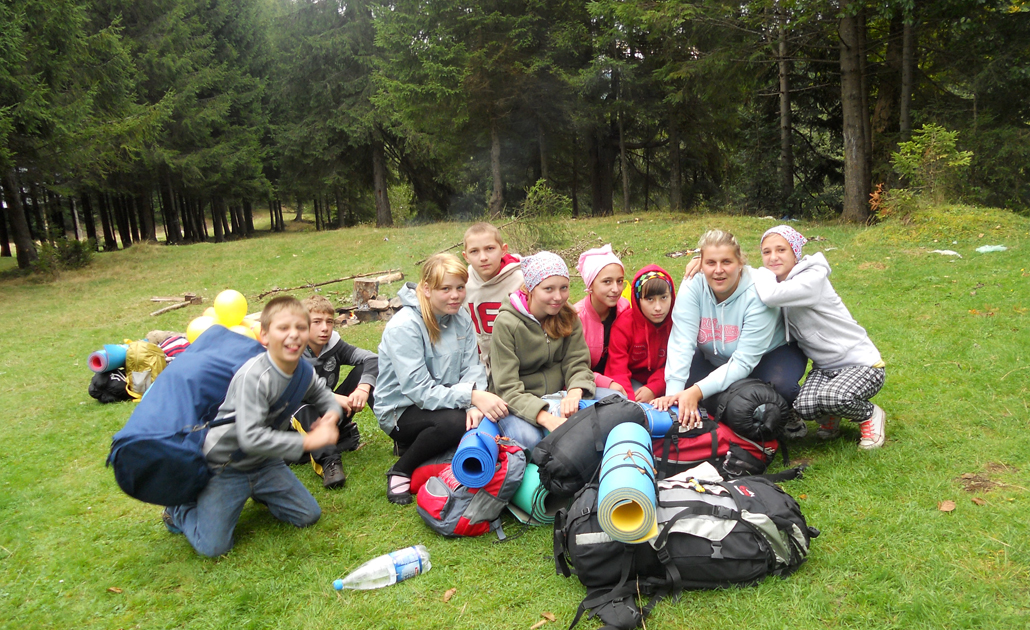
In particular, representatives of Caritas in 2009 held a trial expert survey on quantity and problematic of labour migrants’ children in all schools of the cities where project was being implemented at that time. That gave us output data on scope and specifics of need in our services. Taking into consideration our own experience of individual and group work with stated target group, employees of central and regional Caritas Ukraine organizations repeatedly participated in scientific practical conferences on labour migration and round tables at national level and in regions of project implementation.
– Zoryano, are there any qualitative and quantitative indicators that three-year work with labour migrants’ children in Ukraine initiated significant changes in the society?
Yes, of course! According to the generalized calculations, for three years almost 100 individuals availed of our centres’ services. For the period of project implementation system of achieved results monitoring was introduced; and though this system of estimations should be improved and systematized, however, some conclusions can be made. Particularly:
– 75% of youngsters who had a high level of anxiety, depressive mood, and redundant restraint showed lowering of these figures after a long-lasting participation in the project events.
– 78% of children with inadequate self-esteem, restraint, passive approach to life, conflict behaviour, were observed to get better; they began to respect themselves and other people; accepted positive and negative sides of themselves and others; coped with fear and restraint; learnt to interact in team with other children, divide and take responsibilities and competences in group activities, understand own emotion and master them.
– 79% of youngsters who had difficulties in relationships with relatives and peers, learnt to solve household conflict situations with calm approach.
– 70% of kids who earlier had problems with studying enhanced their academic progress, became more motivated to education process and scholastic attainments..
– 50% of teenagers who had no preferences and orienting points for the future defined professional sphere, where they will continue studying and start working.
– 78% of children and youth who lacked household skills, couldn’t alone take care of oneself and sort out own tasks, – received relevant knowledge and skills.
– 75% of children and youth who at the beginning of the project weren’t involved in any kind of sport activity, and spent time playing computer games and watching TV, – learnt to organize their leisure effectively and in an interesting manner.
– Can you describe project of assistance to labour migrants’ children?
Among the activities organized in the project framework were group activating events, games, trainings, other team building lessons, classes on self-esteem correction and development of communicative skills, opening of inner resources, cultivation of tolerance; also activities targeted at mastering responsibility, informational and educating events that are relevant to children and youth of any age; individual psychological and pedagogical follow-up; informational events for parents and 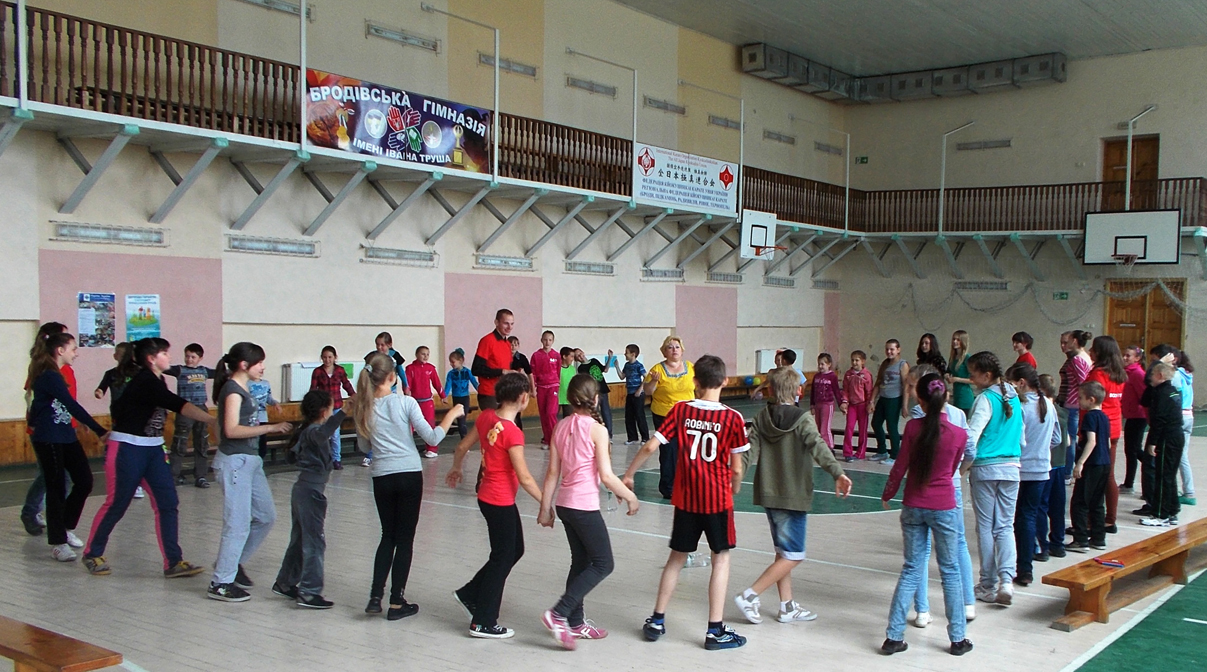 caregivers; creation of possibilities for various active and beneficial leisure; sport activities; backpacking; trips for team building that motivate to get new experience, provide conditions for revealing own skills; organization of camps, tent sites where children and youth learn team behaviour and constructive ways to cope with conflict situations and household tasks.
caregivers; creation of possibilities for various active and beneficial leisure; sport activities; backpacking; trips for team building that motivate to get new experience, provide conditions for revealing own skills; organization of camps, tent sites where children and youth learn team behaviour and constructive ways to cope with conflict situations and household tasks.
– Please, name the main results of “Network of Social Centres for the Children of Labour Migrants” project closing conference
At the closing of the project all teams (note – Ivano-Frankivsk, Kolomyia, Drohobych, Novovolynsk, Brody, Boryslav, Stryi) reached a conclusion that this group of clients should be included to the target one for psychologists and social workers, because many children and youth whose parents are on earnings go through a great stress and require help in dealing with various problems. However, it’s not right to separate this group of kids from others. It doesn’t mean that if your parents are labour migrants that you don’t need ordinary environment.
Another point of consideration is an understanding that introduction of more distinct time frames for project clients is necessary; so that they will be more oriented to cope with concrete problems, show more action in the process of solving problems and to avoid habituation and manipulation from the clients and their parents side.
One more conclusion is that we have to add school of financial management to the activities of social centres. In fact, nearly all teenagers and young people are unaware of money management, don’t know its value, spent it thoughtlessly and harmfully for own health. It often leads to resentment of parents and worsening of relationships; it doesn’t favour competence for the independent future life.
A 4-hour training call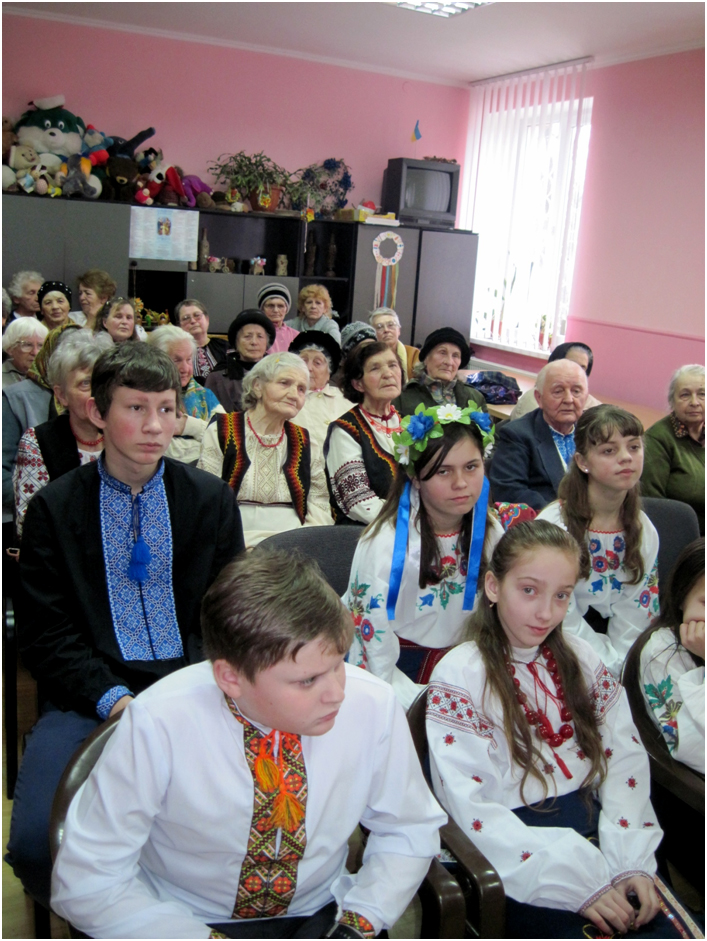 ed “Art therapy approach in individual and group work with labour migrants’ children” was carried in the frames of the conference on work with labour migrants’ children. It was conducted by Maria Solomatina, expert of the ‘Rozrada’ International Humanitarian Centre on Practical
ed “Art therapy approach in individual and group work with labour migrants’ children” was carried in the frames of the conference on work with labour migrants’ children. It was conducted by Maria Solomatina, expert of the ‘Rozrada’ International Humanitarian Centre on Practical
Psychology. It is no coincidence, because Caritas employees recognize great value of art therapy and other interactive methodologies as tools of social work with needful children and youth.
At the conference agenda there was also a discussion on participation of regional teams of Caritas Ukraine project in preparation of toolkit for social workers and teachers who are involved in activities with labour migrants children. Publishing of this toolkit will be done by Committee on migration of the UGCC and Committee on education and upbringing of the UGCC. Caritas articles will be a background for practical part of the toolkit and illustrative material for implementation of different approaches in work.
– Apart from work with labour migrants’ children, what are the other current activities of Caritas Ukraine on rendering aid to needful children, youth and families?
Nowadays these activities include 5 social centres on mobile work with youth (Kyiv, Donetsk, Lviv, Khmelnytskiy and Ternopil), 7 social centres for labour migrants’ children (Ivano-Frankivsk, Kolomyia, Drohobych, Stryi, Boryslav, Brody, Novovolynsk), educational and care establishment for pre-school children (Lviv), 2 pilot projects of social flats (Ternopil and Donetsk), and target assistance to children, youth and families in need.

For the period of 2012 over 1000 individuals have stayed under care of daily social centres for children, youth and families and have received help in dealing with own life difficulties; some hundreds of people in need got counselling or target assistance. Furthermore, in 2012 over 150 children of pre-school age and 65 families in complicated living circumstances have availed of establishment for preschool kids Crisis centre “Street children” in Lviv.
– And the last question: what are the sources of financial support for the conference and work with children of labour migrants in Ukraine? Is there any interest among Ukrainian citizens to solve this problem?
Closing conference and 3 years of work with labour migrants’ children is done for budget money of project “Network of Social Centres for the Children of Labour Migrants” that is supported by Caritas in Spain, in France and in Switzerland. Unfortunately, neither of 40 million Ukrainians provides financial assistance for work with labour migrants children.
Tags:

